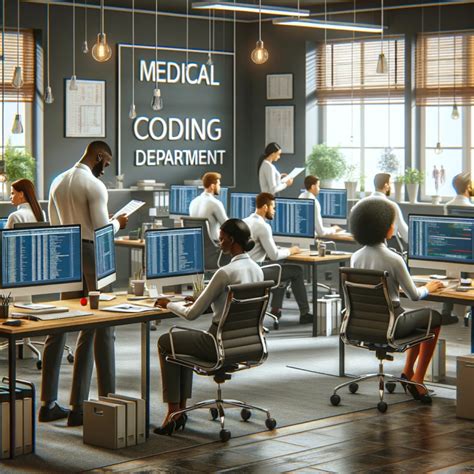Introduction

Behind the scenes of every healthcare facility, a dedicated group of professionals works tirelessly to ensure that patient information is accurate, secure, and accessible. These individuals are known as medical records specialists (MRSs). Their work plays a crucial role in delivering efficient and effective patient care.
MRSs are responsible for a wide range of tasks, including:
- Creating and maintaining patient medical records
- Coding and billing for medical services
- Managing electronic health records (EHRs)
- Ensuring compliance with HIPAA and other privacy regulations
- Providing customer service to patients and providers
MRSs serve as a vital bridge between patients, providers, and healthcare organizations. They ensure that patient information flows smoothly among these parties, facilitating better care coordination and decision-making.
Despite their critical role, MRSs often face numerous challenges, including:
- High workload and time constraints
- Lack of adequate training and resources
- Complex and evolving privacy regulations
- Limited career advancement opportunities
These challenges can lead to stress, burnout, and reduced job satisfaction among MRSs. Addressing these pain points is essential for ensuring the well-being of MRSs and the quality of patient care.
Despite the challenges they face, MRSs are motivated by a deep commitment to:
- Improving patient outcomes
- Protecting patient privacy
- Supporting healthcare providers
- Ensuring the efficient and accurate operation of healthcare facilities
MRSs take pride in their ability to make a positive impact on patient lives and contribute to the smooth functioning of the healthcare system.
To ensure the accuracy and security of patient information, MRSs should avoid common mistakes such as:
- Misinterpreting handwritten notes
- Failing to properly code diagnoses and procedures
- Breaching patient confidentiality
- Not following HIPAA guidelines
- Neglecting to update patient records regularly
By adhering to best practices, MRSs can minimize errors and ensure the integrity of patient information.
The field of medical records management is constantly evolving with the advent of new technologies and privacy regulations. MRSs must adapt to these changes by:
- Embracing continuing education
- Staying up-to-date with industry best practices
- Collaborating with IT professionals
- Advocating for patient privacy and data security
MRSs who embrace these changes will be well-positioned to meet the challenges of the future and contribute to the advancement of healthcare.
Beyond their traditional roles, MRSs have the potential to play a more active role in healthcare innovation. Here are a few ideas:
- Data Analytics: MRSs can use their expertise in medical coding and data management to analyze patient information and identify trends and patterns that can improve care outcomes.
- Quality Improvement: MRSs can collaborate with healthcare providers to identify areas for improvement in patient care and develop strategies to address them.
- Patient Engagement: MRSs can provide patients with access to their medical records and empower them to take an active role in their healthcare decisions.
By leveraging their specialized knowledge and skills, MRSs can contribute to the development of innovative solutions that enhance patient care and healthcare delivery.
| Pain Point | Impact | Solution |
|---|---|---|
| High workload | Stress, burnout, reduced job satisfaction | Streamline workflows, increase staffing, provide training |
| Lack of adequate training | Errors, reduced productivity | Invest in ongoing education, provide mentorship programs |
| Complex privacy regulations | Increased risk of data breaches | Implement robust security measures, provide regular training on HIPAA compliance |
| Limited career advancement opportunities | Low morale, loss of motivated staff | Create career paths, offer professional development opportunities |
| Motivation | Positive Impact | Examples |
|---|---|---|
| Improving patient outcomes | Enhanced quality of care, reduced medical errors | Accuracy in medical records, efficient data sharing |
| Protecting patient privacy | Trust in healthcare system, reduced data breaches | Adherence to HIPAA guidelines, ethical handling of patient information |
| Supporting healthcare providers | Streamlined workflows, improved decision-making | Timely access to patient records, accurate coding |
| Ensuring efficient healthcare operations | Reduced costs, increased productivity | Proper billing and coding, automated record-keeping |
| Common Mistake | Consequences | Prevention |
|---|---|---|
| Misinterpretation of handwritten notes | Inaccurate diagnoses, delays in treatment | Standardize handwriting protocols, use electronic documentation |
| Incorrect coding | Improper reimbursement, misallocation of resources | Follow industry coding standards, use computer-assisted coding |
| Privacy breach | Loss of patient trust, legal liabilities | Implement strict access controls, provide regular training on HIPAA compliance |
| Outdated patient records | Delays in care, missed diagnoses | Establish a system for regular record updates, track changes |
| Future Application | Potential Impact | Opportunities for MRSs |
|---|---|---|
| Data Analytics | Improved patient outcomes, reduced costs | Develop analytical skills, collaborate with data scientists |
| Quality Improvement | Enhanced quality of care, increased patient satisfaction | Participate in quality improvement initiatives, lead data-driven projects |
| Patient Engagement | Empowered patients, improved self-management | Create patient portals, provide access to medical records |
